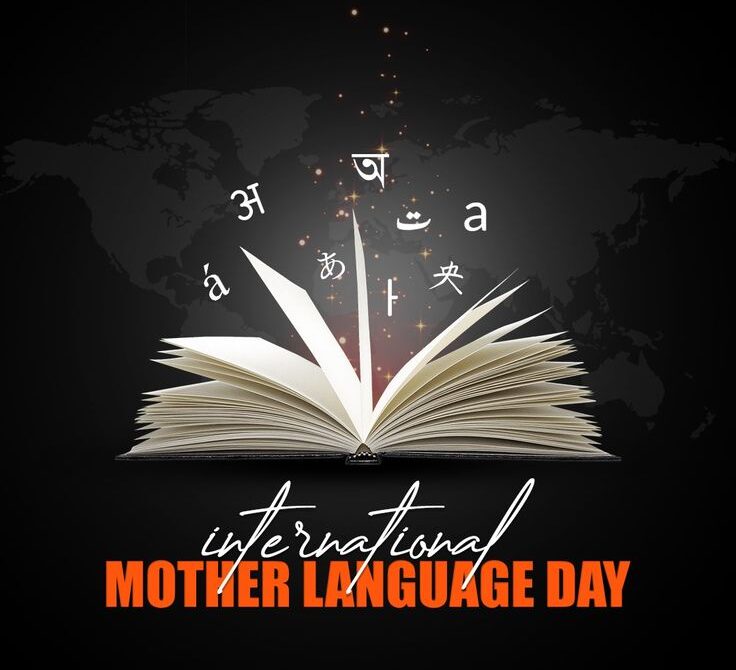🗣️ Introduction: The Language of the Heart
Imagine waking up in a world where your first words — the ones your mother used to sing you lullabies — are silenced. Language is more than a tool for communication; it is a vessel of identity, culture, love, and memory.
- 📜 History of International Mother Language Day
- 🗓️ Timeline of Key Events
- 📌 10 Fascinating Facts About Mother Languages
- ❓ FAQs About International Mother Language Day
- 🔤 What is International Mother Language Day?
- 🕊️ Why is it celebrated on February 21?
- 📣 Why is preserving mother languages important?
- 🌎 How is it celebrated globally?
- 🧠 Significance of Mother Language in Life and Society
- ❤️ 1. Emotional Connection and Identity
- 📚 2. Foundation of Learning
- 🧬 3. Cultural Preservation
- ⚖️ 4. Social Inclusion and Equity
- 📢 5. Freedom of Expression
- 🗓️ How Is International Mother Language Day Celebrated?
- 💬 Heartfelt Wishing Messages and Quotes
- 🌱 Daily Life Impact: Why It Still Matters
- 🌟 Key Takeaways and Lessons
- 🏁 Conclusion: Let’s Speak Up for Our Mother Tongue
International Mother Language Day, observed on February 21, is not just a celebration of languages — it’s a powerful movement to preserve linguistic diversity, cultural heritage, and the right to express yourself in your own voice.
📜 History of International Mother Language Day
The roots of this day trace back to a tragic yet heroic incident in Dhaka, Bangladesh (then East Pakistan) in 1952. On February 21, several students from the University of Dhaka and other activists were killed during a protest. They were demanding that Bengali (Bangla) be recognized as one of the official languages of Pakistan.
To honor their sacrifice, Bangladesh proposed to UNESCO that February 21 be observed globally as International Mother Language Day, which was officially adopted in 1999 and observed for the first time in 2000.
Since then, this day has been a reminder that language is a human right, and preserving it is essential for inclusivity, peace, and dignity.
🗓️ Timeline of Key Events
| Year | Event |
|---|---|
| 1948 | Urdu declared the sole national language of Pakistan, sparking protests in East Pakistan (now Bangladesh). |
| 1952 | Students killed in Dhaka on February 21 for defending the Bangla language. |
| 1999 | UNESCO declares February 21 as International Mother Language Day. |
| 2000 | First global observance of the day. |
| 2008 | The UN launches the “International Year of Languages.” |
| 2021 | 21st anniversary celebrated with the theme “Fostering multilingualism for inclusion in education and society.” |
| 2024 | Global theme: “Multilingual education — a necessity to transform education.” |
📌 10 Fascinating Facts About Mother Languages
🌐 There are over 7,000 languages spoken worldwide today.
🧠 Learning in one’s mother tongue boosts cognitive and emotional development in children.
📉 A language disappears every two weeks, and nearly 40% of the world’s languages are endangered.
💡 Bilingual and multilingual people often show better decision-making skills.
📚 Many countries now promote mother tongue-based multilingual education at the primary level.
🗺️ Papua New Guinea has the highest linguistic diversity with over 800 languages!
🧓 Indigenous communities rely on language for oral history and cultural survival.
🎶 Folk songs and rituals in native languages are often untranslatable and deeply symbolic.
📻 Community radio plays a vital role in preserving and promoting dying languages.
🌍 The UN SDGs (Sustainable Development Goals) emphasize the role of mother tongue in inclusive education and equity.
❓ FAQs About International Mother Language Day
🔤 What is International Mother Language Day?
It is an annual observance by UNESCO on February 21 to promote linguistic and cultural diversity and multilingualism.
🕊️ Why is it celebrated on February 21?
This date commemorates the 1952 language movement martyrs in Dhaka, who died defending the right to speak their mother language.
📣 Why is preserving mother languages important?
Because languages carry identity, cultural memory, traditions, and are central to education and inclusion.
🌎 How is it celebrated globally?
With events like:
Cultural parades
School competitions
Public speeches
Seminars on language preservation
Online multilingual campaigns
🧠 Significance of Mother Language in Life and Society
❤️ 1. Emotional Connection and Identity
Your mother language is often the first voice of love and comfort. It shapes your emotional world, cultural values, and identity. Losing it is like losing a part of yourself.
📚 2. Foundation of Learning
Children learn faster, better, and more meaningfully in their native language. Mother tongue instruction in early education leads to higher literacy, better grades, and greater self-confidence.
🧬 3. Cultural Preservation
Festivals, songs, folktales, and rituals are passed down through language. Without native tongues, generational knowledge is lost.
⚖️ 4. Social Inclusion and Equity
When people are allowed to communicate in their own language, they participate more fully in society — from voting to healthcare and public policy.
📢 5. Freedom of Expression
Language is a human right. Being denied the right to use your language is a form of cultural oppression.
🗓️ How Is International Mother Language Day Celebrated?
🏫 In Schools:
Storytelling in native languages
Essay writing and speech competitions
Dress-up days representing various cultures
Language tree projects displaying mother tongues of students
🎭 In Communities:
Cultural programs with local songs, dances, and poetry
Language exhibitions and fairs
Workshops on translation, indigenous literature, and endangered dialects
🌐 Online:
Hashtags like #MyLanguageMyPride, #MotherLanguageDay, and #LinguisticDiversity
Multilingual webinars and campaigns
Virtual poetry recitals in local languages
💬 Heartfelt Wishing Messages and Quotes
🌸 “Your mother language is not just a tongue. It’s the sound of your soul. Happy International Mother Language Day!”
💖 “Celebrate the language that cradled your first words. Preserve it. Share it. Love it.”
🕊️ “A world with many languages is a world rich in love, stories, and wisdom.”
📣 “Languages are bridges, not barriers. Let’s build a multilingual world together.”
🌱 Daily Life Impact: Why It Still Matters
Even in 2025, this day is relevant because:
Urban migration causes many children to lose fluency in their native tongue.
English and tech-driven communication threaten minority and tribal languages.
Mother language education is still underfunded in many regions.
Digital content in local languages is limited, leading to exclusion from online spaces.
Preserving your mother language isn’t about rejecting others — it’s about embracing yourself.
🌟 Key Takeaways and Lessons
Linguistic diversity = Cultural strength.
Schools must implement mother tongue-based education, especially in early grades.
Parents should speak to children in their native language at home.
Governments must support translation, publishing, and broadcasting in regional languages.
Digital platforms should promote content in multiple languages.
🏁 Conclusion: Let’s Speak Up for Our Mother Tongue
In a rapidly globalizing world, International Mother Language Day reminds us of our roots. Languages are not just modes of communication, but expressions of love, legacy, and liberty.
When we lose a language, we lose a worldview. Every word in your native tongue is a thread in the rich tapestry of human diversity. Let’s not let them unravel.
So this February 21, speak your truth, sing your song, share your story — in the language that shaped you.
🌺 “In your mother language, even silence speaks volumes.”








